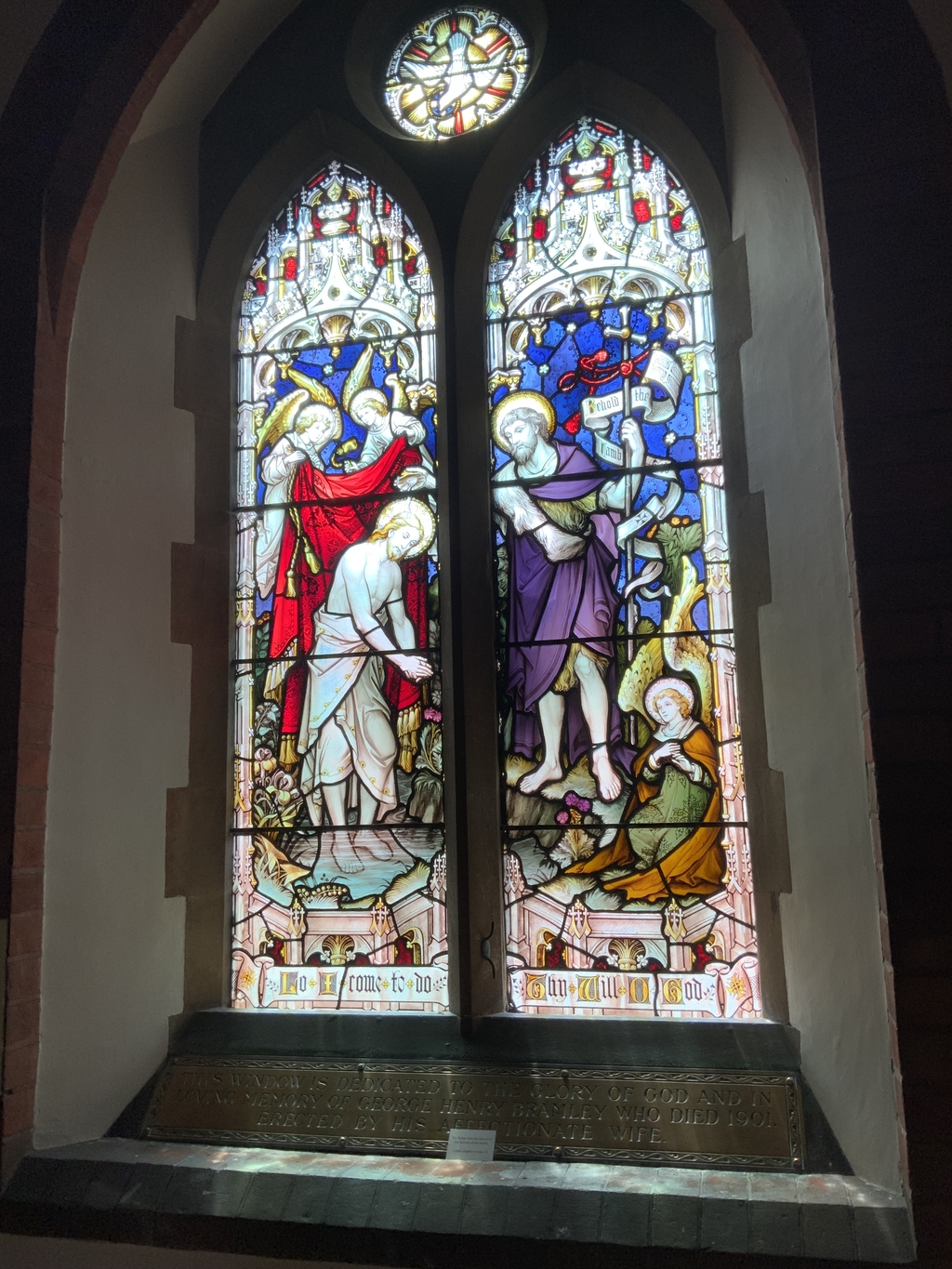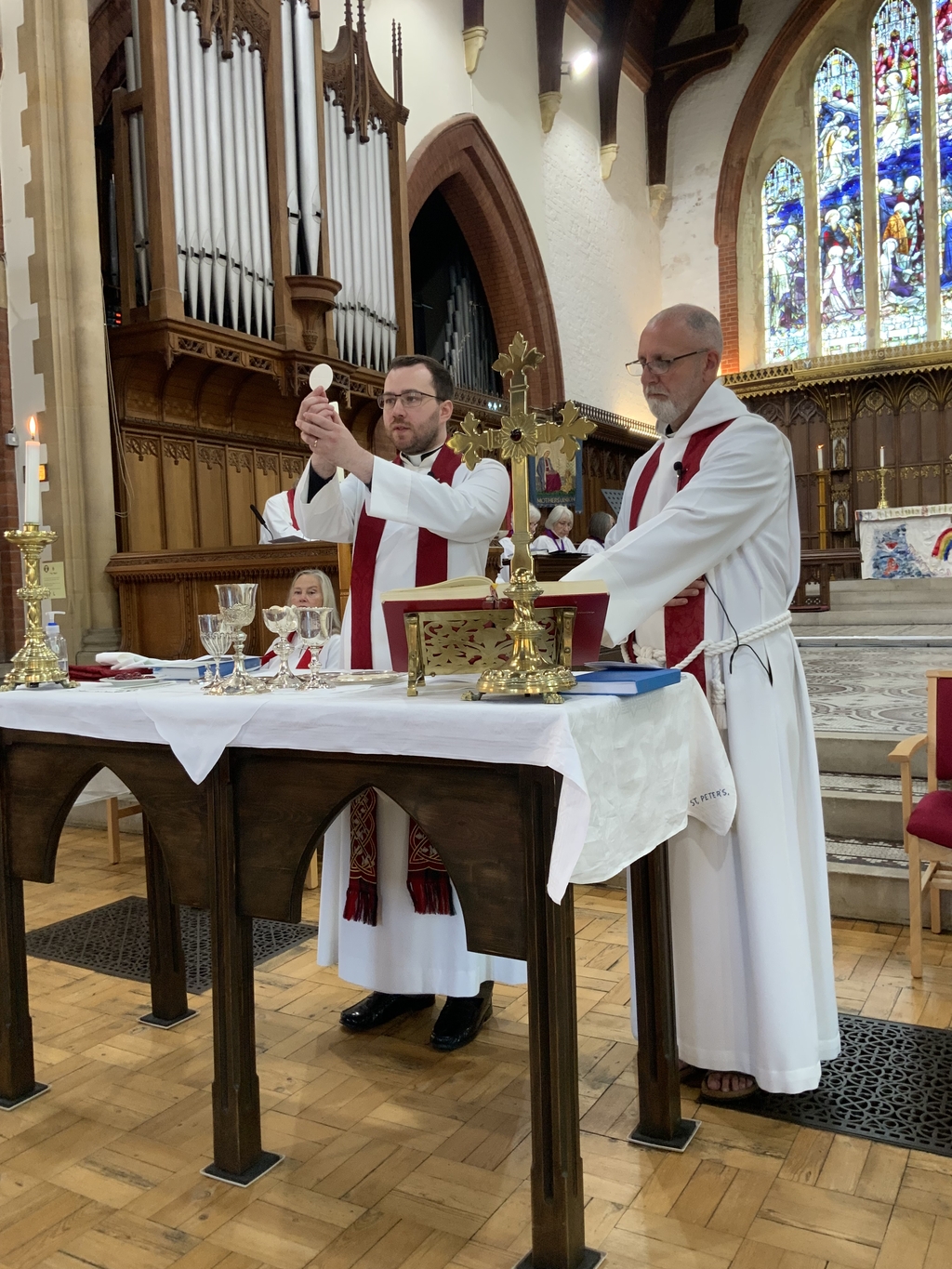Such an unusual story – the account of the Transfiguration. It comes towards the end of Jesus` ministry and illustrates for the apostles and for us what he had come to do.
Here is Jesus with his closest disciples – Peter James and John. They are on a high mountain away from the crowds – perhaps Mount Hermon which is the highest in the region, just a few miles from Caesarea Philippi where Jesus had asked his disciples: `who do you say that I am?` Jesus` appearance changes. Moses and Elijah appear alongside Him. And, echoing the voice at Jesus` baptism, here are the words from the bright cloud: `This is my Son, whom I love, with him I am well pleased. Listen to him!`
They were terrified and fell to the ground. Again and again throughout the bible are these strengthening words and here they are again from Jesus: `Don`t be afraid.` And he warns them not to tell anyone what they have seen until after the Resurrection.
There are many things in the bible which we find hard to understand, many ways in which our faith is challenged. How can we be sure that these things really happened?
For the answer to that, we turn to our Epistle reading and St. Peter`s Second Letter, chapter 1.
Peter says firmly that the account of Jesus is true in every detail. Here are his words: `We did not follow cleverly devised stories when we told you about the coming of our Lord Jesus Christ in power, but we were eye witnesses of his majesty.` The Gospel is not a series of jolly stories and interesting teaching. It is about the coming of God to Man in Jesus, and about how we might respond to that coming. Jesus` deepest teaching was often limited to the apostles – as here - but he depended on them as he does on us for one reason. Here it is in that same verse: `we were eye-witnesses of his majesty.`
We Saw It
The people writing the Gospels wrote those accounts as themselves being eye-witnesses and in consultation with those who were eye-witnesses of the accounts of Jesus. In today`s Gospel, there are three witnesses: Peter, James and John, all of whom wrote letters to the early church about what they had seen. So here is their clear remembrance of the words from the cloud in Matthew`s Gospel: `This is my Son, whom I love; with him I am well pleased.` If we say that these things didn`t happen, we make the apostles out to be liars. The books of the New Testament were written between fifty and one hundred years after Jesus. They were collected and read in the churches between AD 100 and 200. They were carefully examined and compared with fraudulent writings between AD 200 and 300, and what we have today in the New Testament was agreed by the year AD 400. There were clear guidelines in that decision. The words had to have come from the apostles. The Christian church carefully examined what was written, ensuring that the doctrine taught was in accordance with what Jesus and the apostles had taught.
Secondly, Peter reminds us of the message of God running like a golden thread through the Old Testament and the New:-
Many Books – One Message
The same message is there through those who brought Israel the law, the ten commandments. The same message is there through each of the prophets like Isaiah, Jeremiah, Amos and all the rest. The same message is there through Jesus and the apostles. The Old Testament interprets the New, and the New Testament explains the Old. Here it is in verse 19 of Peter`s letter: `We also have the prophetic message as something completely reliable, and you will do well to pay attention to it.` In the Gospel account of the Transfiguration, the figure of Moses represents the giving of the Law, Elijah the message of the prophets and Jesus fulfils the Old Testament in his presence as the New Testament, the new covenant.
God`s Word – Listen to Him
Finally, Peter reminds us that prophecy is not about people`s ideas but the word of God to his creation. Verses 20 and 21: `You must understand that no prophecy of Scripture came about by the prophet`s own interpretation of things. For prophecy never had its origin in the human will, but prophets, though human, spoke from God as they were carried along by the Holy Spirit`.
There are many bright ideas in today`s world, much teaching based on spiritual things, but the difference between those ideas and those of the bible is that those who wrote the bible wrote what was in the mind of God. The Holy Spirit guided the writers of the bible, through the centuries, writing that which was given by God, enabling us to come to faith and grow in it. Reading the bible changes lives in a way no other book can.
So Peter says clearly in verse 19: `You will do well to pay attention to it.` We are about to enter the season of Lent. God calls us to come closer to him through the reading of his word and through our response of worship. There is so much he longs us to hear through his Word, `as to a light shining in a dark place, until the day dawns and the morning star rises in your hearts`. We do well to listen.
The Revd Pat Hopkins











